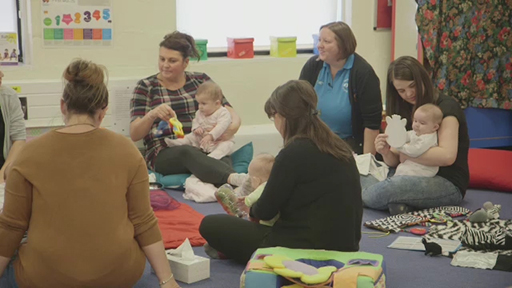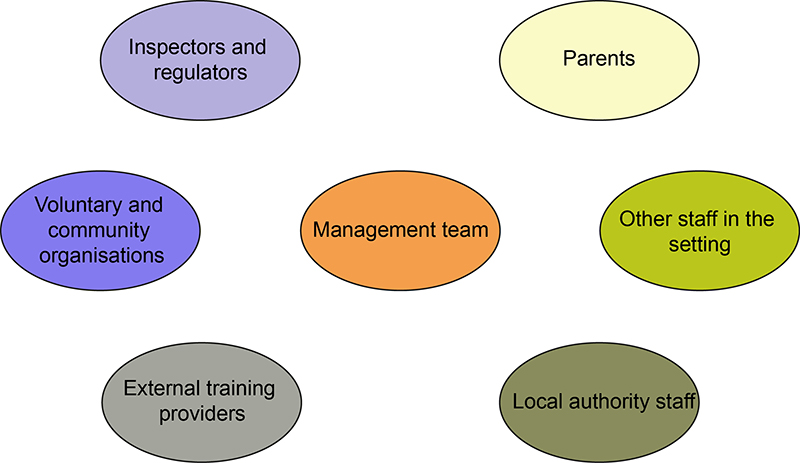1 Building positive relationships
You have looked at the importance of providing positive, nurturing experiences for babies and young children, but in order for this to happen it is vital that parents feel confident and supported.
Activity 1 Supporting parents
Watch this Open University video, which looks at the ‘Incredible Babies’ programme in Wales. As you watch it, note down anything that you notice the parents or practitioners say about what they and their babies get from relationships they have formed within the group.

Transcript: Video 1
Discussion
Throughout the video, the importance of having trusting, effective relationships is mentioned. Helene, the group leader, tells us that once the group has gelled and the relationships are strong, no new members are introduced. The mums highlight that within the group they feel comfortable to ask for help, share experiences, look for reassurance and explore ideas because of the relationships they have developed. They are able to build connections with their wider community and develop confidence. The mums also recognise that the group gives their babies opportunities to start to make relationships with the other children who they will be going to school with.
All these aspects show us the impact that relationships have on lots of different elements of practice. In this case the relationships are positive and are helping the members of the group to gain confidence and make progress, and we need to try and make sure these are the types of relationship we are promoting.
When practitioners work with babies and young children, they build relationships with lots of people. These can include:
You might be able to think of other people who are involved in a setting too. Working with each of these groups requires lots of different skills and knowledge. For example, the way you communicate with parents would not be the same as the way you communicate with regulators, and the information shared with the local authority would not be the same as that given to community organisations. Managing these different requirements is one of the professional skills that early childhood practitioners need in order to build effective relationships.
Traditionally, working with very young children was seen as an informal role that did not need any formal training or qualifications rather than a professional position, and it was assumed that women would be best at it because they were predisposed to ‘mothering’. As a result of research into child development and recognition of the connection between quality care and improved outcomes for children, these attitudes have begun to change. This has resulted in actions being taken to try and professionalise the early childhood workforce by introducing training and qualification pathways that provide clear evidence of practitioners’ skills, knowledge and understanding.
The professional characteristics of practitioners working with young children in Wales are outlined in these ‘Enabling Adult’ descriptors:
Enabling Adults:
- Are warm, attentive and responsive to babies and young children.
- Are skilful, observant and interested in babies and young children and how they develop.
- Use knowledge and understanding of child development to support all children.
- Use knowledge and understanding of how babies and young children learn to plan experiences and environments.

